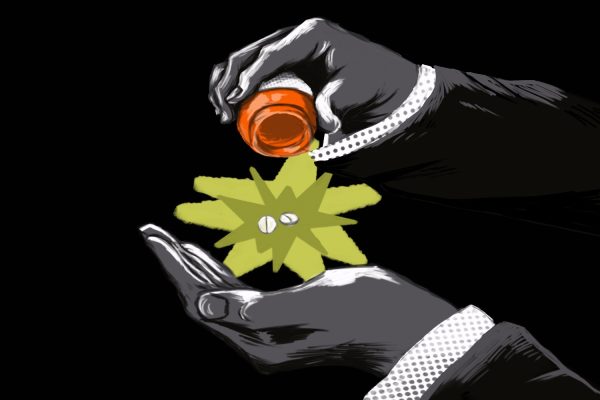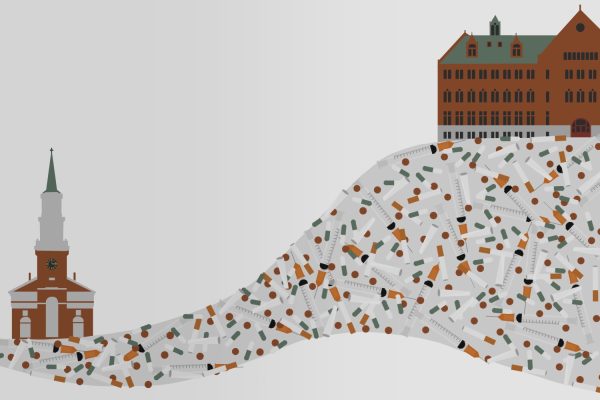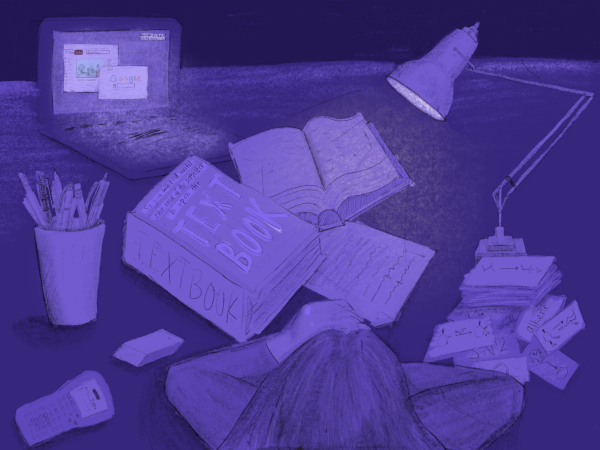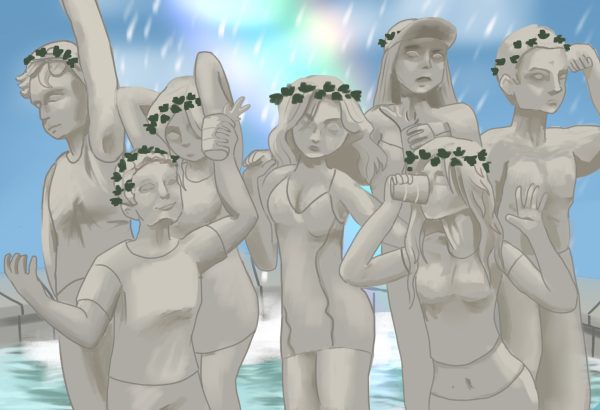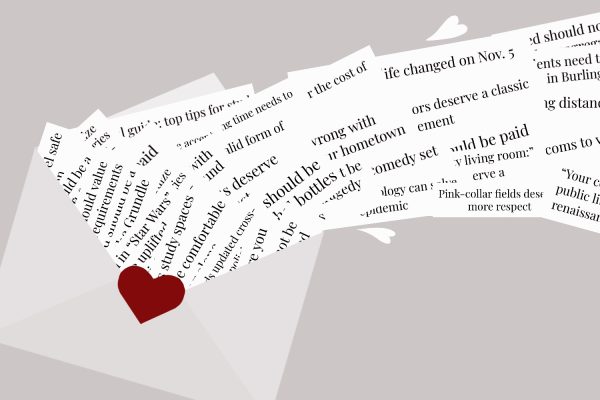Intolerance runs rampant
In times of national grief, it is an instinct to search for unity and solidarity in processing the tragedy at hand. The Boston bombings have brought people together to mourn the loss of life, recognize heroes and celebrate the capture of the suspect.
As consumers of media, we have seen pictures and articles that have given us many reasons to stand together as a nation and say that we are ÒBoston Strong.Ó
In the wake of a horrible event, we view national unity as sacred. What we fail to realize during the emotional response is that unity has more dimensions than one. As Americans, we have forgotten that in todayÕs political and social environment, unity is created in opposition to something else, or the Òother.Ó
The media displays how we are united in our grief for the victims and support for their families, and how we have rejoiced in the arrest of Dzhokhar Tsarnaev. But, if we are united, what are we united against?
It is important not only to reflect on the event itself but also how we process and respond to the given calamity. When critically examining our group response to the Boston Marathon bombing through the media, it is clear that America has united against several troubling factors.
This media coverage has confirmed three ugly truths: America is troubled by Islam, Americans maintain a paradigm of Òour country verses theirsÓ and cultural differences are viewed in a negative light.
The media portrayal of the Boston attack and the Tsarnaev brothers has been biased and shameful. Across media outlets, the number of times the brothersÕ religion and national origin is mentioned is alarming.
One particularly disturbing news report is from Fox News.
The article reported, ÒOn Thursday night, hours after the radicalized Muslims were fingered by the FBI and their images circulated around the world, they killed a Massachusetts Institute of Technology police officer and carjacked an SUV from a man who later escaped.Ó
Not only is the language violent and accusatory, the use of the phrase Òradicalized MuslimsÓ is inflammatory.
Other news sources have used more subtle language to call attention to the brothersÕ origins and that they are foreign and differ from typical citizens.
According to NBC news, ÒPolice cornered Tsarnaev around 7 p.m., less than an hour after the police lifted a stay-indoors order for the city and its suburbs.Ó
Several sources have published TamerlanÕs quote from the Boston University student magazine from 2010, where he said that he did not drink because ÒGod said no alcohol.Ó
Tamerlan was further quoted in the press saying, ÒI donÕt have a single American friend. I donÕt understand them.Ó DzhokharÕs social media page was also referenced repeatedly, with his worldview indicated as ÒIslamÓ and his personal goal being Òcareer and money.Ó
Why is it important that Tamerlan did not drink alcohol? Why did the many of news sources report that Dzhokhar identified as Muslim? Why did it matter that Tamerlan did not ÒunderstandÓ Americans?
ItÕs because the United States still defines itself with the rhetoric of Òus verses them.Ó We united in support of suffering Americans, but we also united unconsciously in our fear of Islam, of foreign nations and of different cultural practices.
A Yahoo News article interviewed Paula Gillette, a neighbor of Tamerlan Tsarnaev, who said of TamerlanÕs wife, ÒWhen she left, she was a normal American girl and when she returned after the first year, her appearance had changed completely and she wore a headscarf.Ó
Gillette clearly implies that a Ònormal American girlÓ is not one who wears a headscarf. It is this publicized discrimination that reflects an ignorance that runs deep in AmericaÕs soil.
The media reports on the Boston bombings have revealed a great deal about AmericaÕs views on religion, national origin and how we perceive our country in relation to the world, but this is a learning opportunity.
We must recognize AmericaÕs shortcomings and identify prejudices. Otherwise, we risk fostering a society that is intolerant, discriminatory and xenophobic.


